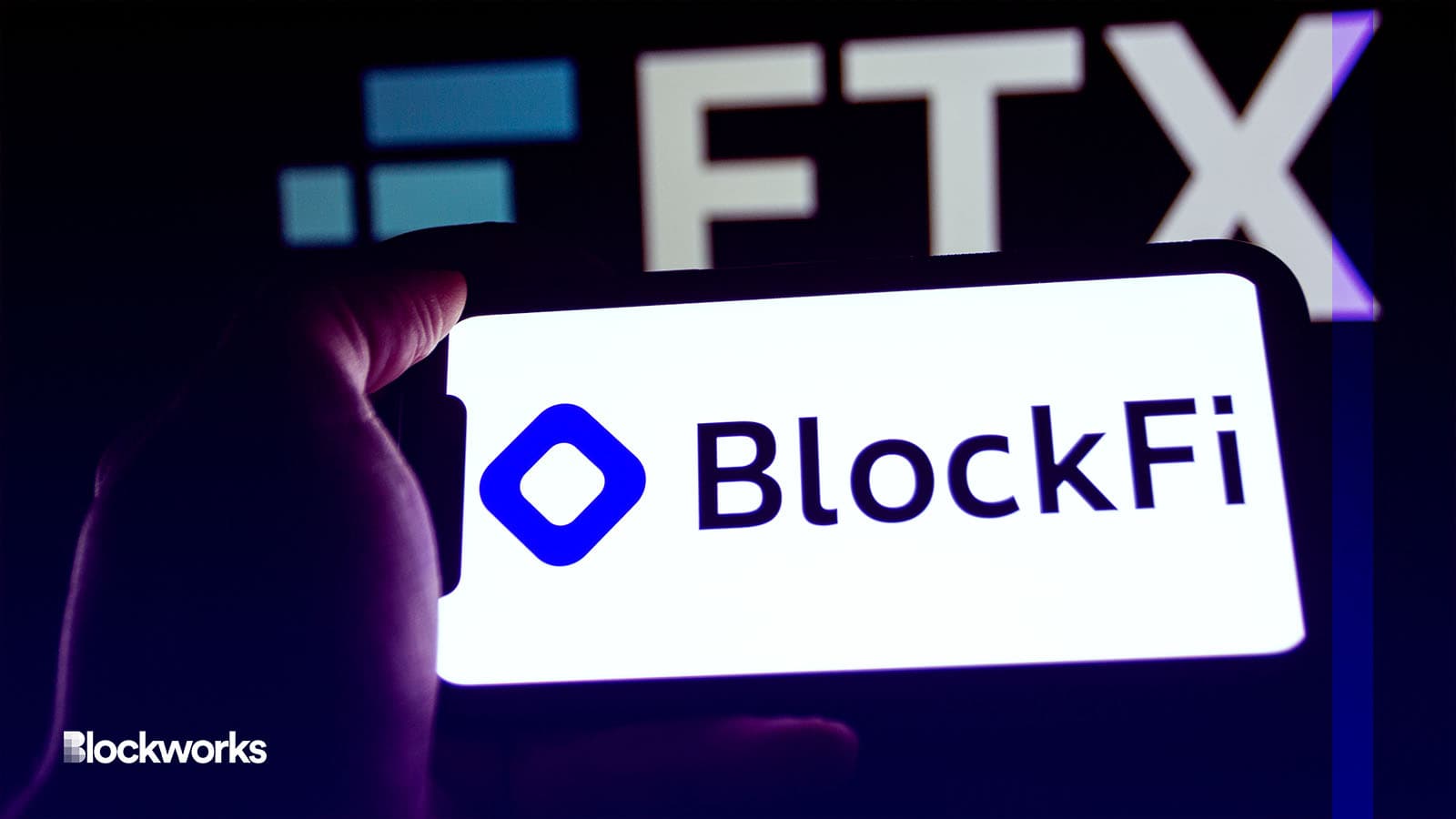BlockFi fights FTX, 3AC claims to billions in disputed creditor funds
BlockFi is fighting tooth and nail to retain billions of dollars from FTX and Three Arrows Capital over allegations of fraud

Rcc_Btn/Shutterstock, modified by Blockworks
Embattled crypto lender BlockFi is seeking to thwart efforts by FTX and Three Arrows Capital (3AC) to recover billions of dollars transacted between the firms before they collapsed last year.
BlockFi alleges it fell victim to the actions of former FTX CEO Sam Bankman-Fried’s business, according to court filings on Monday. It is alleged that FTX misappropriated customer funds with sister trading firm Alameda Research in an elaborate scheme designed to defraud investors.
“The scheme included fraudulently inducing BlockFi to loan over $1 billion worth of digital assets deposited on the BlockFi platform to Alameda Research,” the lender said in the filing.
As such, BlockFi, which is in the process of liquidation since May, argues the failed crypto exchange FTX has no entitlement to the more than $5 billion it is seeking.
BlockFi is also arguing the now-collapsed, formerly Singapore-based, hedge fund 3AC are also not entitled to repayment, alleging fraudulent behavior. 3AC filed for bankruptcy midway through last year following risky bets in various crypto and allegations of poor risk management.
The hedge fund has claimed BlockFi’s attempts to minimize its claims could violate the bankruptcy protection afforded to it after it sought Chapter 15 protection.
It’s the latest in the continuing legal saga, with the potential to greatly influence repayments to creditors of BlockFi, FTX and 3AC in their respective bankruptcy cases.
BlockFi previously warned that legal battles with FTX, 3AC and other crypto firms could significantly reduce repayments to its customers by up to $1 billion. The lender also argues the recovery of assets on behalf of its clients depends on the legal outcome against FTX, 3AC and others.
FTX, whose founder Bankman-Fried has pleaded not guilty to fraud charges, is seeking to recover loan repayments and collateral pledged to BlockFi before its own bankruptcy in November. That includes about $90 million in withdrawals by BlockFi from FTX.com.
In early August, creditors of BlockFi reached a settlement with the company to move a debt repayment plan forward. Under the latest proposal from the bankrupt lender, funds that are not in wallets would be returned to customers.
The company will also refrain from reclaiming any amounts below $250,000 that clients have transferred from BlockFi interest accounts or BlockFi private client accounts to their wallets.
Earlier this year, the committee representing BlockFi’s unsecured creditors advocated for a Chapter 11 trustee independent of its bankruptcy plan.
The move came in response to allegations that the debtors had violated their own commitments to customers by liquidating close to $240 million of their crypto holdings.
Get the news in your inbox. Explore Blockworks newsletters:
- The Breakdown: Decoding crypto and the markets. Daily.
- 0xResearch: Alpha in your inbox. Think like an analyst.






